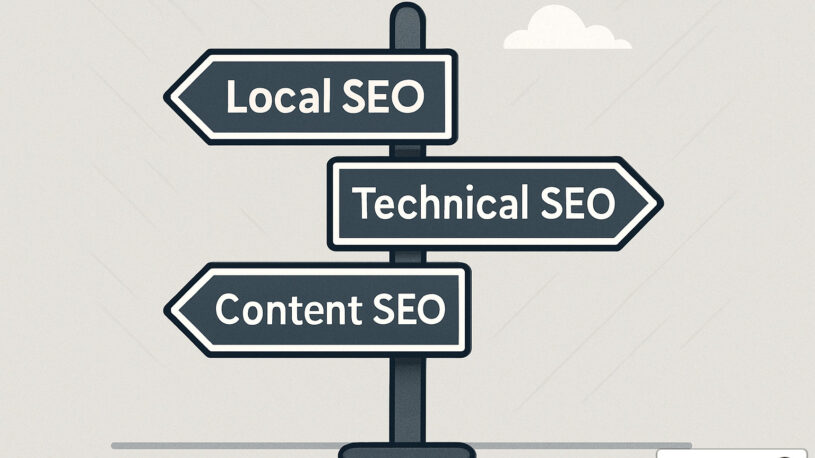

The Role of Social Media in SEO
In today’s digital era, social media has become an integral part of our lives. It has grown to be more than just a platform to connect with family and friends; it is now a vital tool for businesses of all sizes. Social media platforms such as Facebook, Twitter, Instagram, and LinkedIn have the potential to increase your brand awareness, attract customers, and improve your search engine rankings.
In this article, we will explore the role of social media in search engine optimization (SEO) and how you can make the most out of it for your business. We will examine how social signals impact SEO performance and provide some tips on creating a social media strategy to boost your online presence.
The Importance of Having a Social Media Presence
In today’s competitive digital landscape, having a strong social media presence is paramount to business success. Social media platforms provide businesses with an opportunity to interact directly with their target audience and engage them in meaningful conversations that build brand loyalty. In turn, social media provides a cost-effective way for brands to advertise their products or services through targeted campaigns that reach specific demographics.
Social media also plays a vital role in search engine optimization (SEO). By creating quality content on social media platforms and sharing it across multiple channels, businesses can increase website traffic and improve their search engine rankings. Additionally, backlinks from reputable social media sites can boost domain authority, which impacts overall SEO performance.
Overall, investing time and resources into building a robust social media presence is crucial for any business looking to succeed in the digital age. A well-executed strategy can not only increase brand awareness but also attract new customers and drive revenue growth while improving SEO outcomes.
How to use Social Media Platforms Strategically to Optimize SEO
When it comes to optimizing your website’s search engine rankings, social media can play a significant role. One way of using social media platforms strategically is by increasing your online presence through consistent content creation and sharing. By actively posting engaging and relevant content on various platforms, you are not only attracting potential customers but also driving traffic to your website.
Another important step in leveraging the power of social media for SEO is incorporating shareable links into your posts. This increases the chances of users sharing your content with their networks, resulting in increased visibility and backlinks – which are valuable contributors to higher search engine rankings. Additionally, taking advantage of trending hashtags related to your industry or business can help increase reach and engagement with targeted demographics.
With all this being said, it is clear to see that social Media Platforms have become an essential tool for businesses seeking improved SEO results. Implementing strategies such as curated content creation, utilizing link-sharing features & popular hashtags can significantly enhance brand awareness across multiple platforms leading towards better customer engagement ultimately translating in ROI gains from organic searches generated by Google Algorithm Updates (GAU).
Maximizing your Reach and Engagement on Social Media Platforms
Maximizing your reach and engagement on social media platforms is crucial in today’s digital age. It requires a strategic approach that aligns with your brand’s goals and values. To start, consider which platforms are most suitable for your business. Focus on those where your target audience frequently visits and ensure that you maintain a consistent presence across all of them.
Creating engaging content is key to attracting followers and keeping them interested in what you have to offer. Your content should be tailored to each platform as they differ in terms of their format and best practices. For instance, Instagram heavily relies on visuals, making it ideal for businesses with visually appealing products or services.
Another effective way to maximize reach is by utilizing paid advertising options such as Facebook Ads or promoted tweets on Twitter. These allow you to target specific demographics based on interests, behaviors, location, etc., ensuring that the right people see your message.
Overall, getting the most out of social media involves constantly analyzing results and adapting strategies accordingly. A successful social media strategy not only improves SEO but also helps strengthen customer loyalty while growing your brand presence online–key factors contributing to long-term success for any business.
Creating an Effective Plan for Social Media and SEO Integration
When it comes to integrating social media and SEO, a well-planned strategy is key. The first step is to identify your target audience and determine which social media platforms are the most effective for reaching them. This will help you tailor your content specifically for those channels, whether it’s creating shareable blog posts or engaging visuals.
Another important factor is keyword research. By identifying relevant keywords in your industry, you can optimize your social media profiles with these terms to improve their visibility on search engines. It’s also important to include links back to your website within each post, which not only drives traffic but also signals search engines that your site has valuable content.
Consistency is crucial in both social media and SEO efforts. This means maintaining an active presence on all chosen platforms while adhering to best practices such as using relevant hashtags or optimizing meta descriptions of shared links. By continually monitoring analytics and making adjustments as necessary, businesses can ensure an effective integration of their social media and SEO strategies to boost online visibility and drive sales growth over time.
Conclusion
Social media has a significant impact on SEO and can play a crucial role in improving search engine rankings. By leveraging the power of social media platforms such as Facebook, Twitter, Instagram, and LinkedIn, businesses can increase brand awareness and attract customers. Social signals such as likes, shares, comments, and followers also contribute to the overall ranking factors for a website.
As we wrap up, remember that it is essential for businesses to incorporate social media into their SEO strategy. They should focus on creating high-quality content that resonates with their target audience while promoting it on various social media channels. Engaging customers through these platforms by responding to comments or messages can also help build trust and loyalty.
Overall, businesses must recognize the importance of social media in today’s digital era and its impact on SEO. By investing time in developing an effective social media strategy and consistently monitoring its performance metrics, companies stand to gain tremendous benefits from increased online visibility and improved search engine rankings.
Table of Contents






